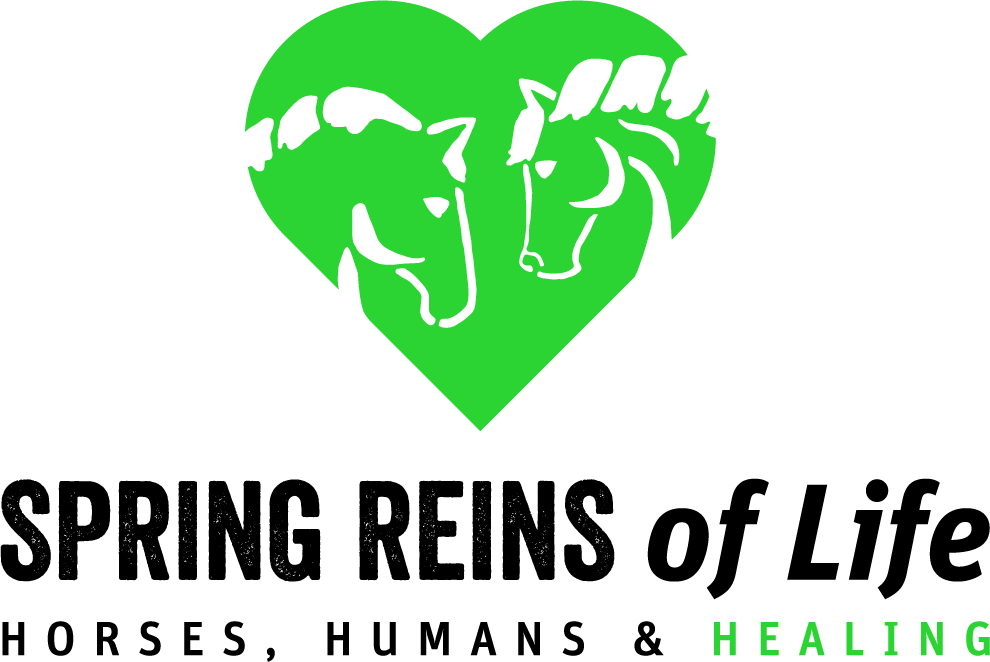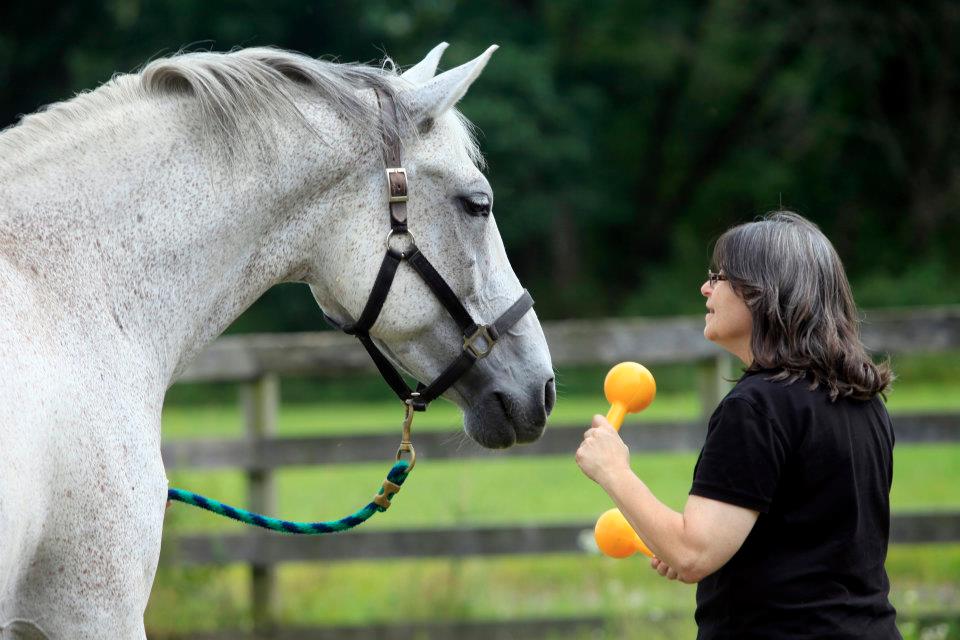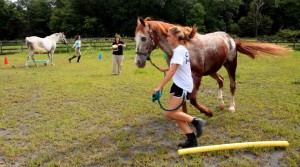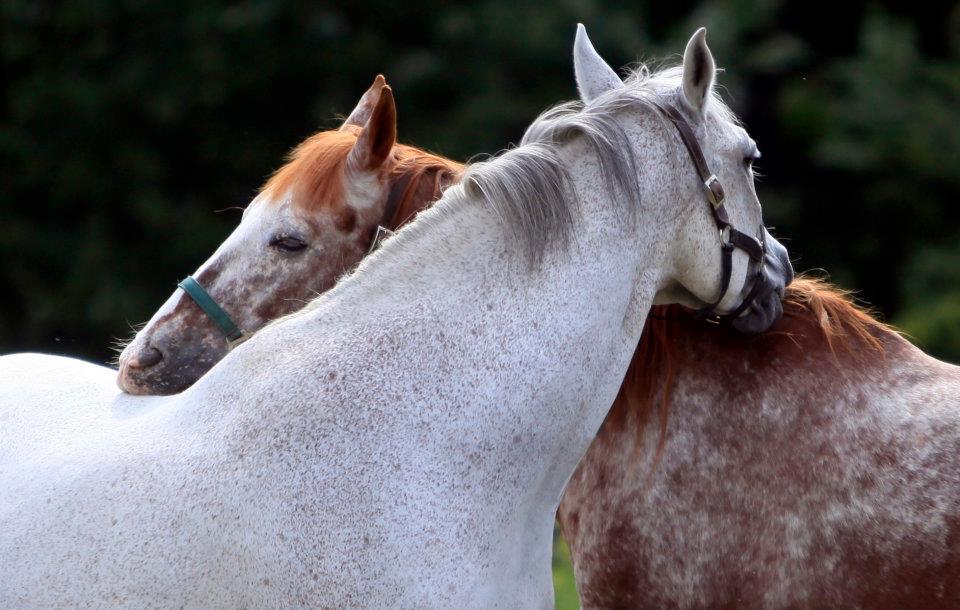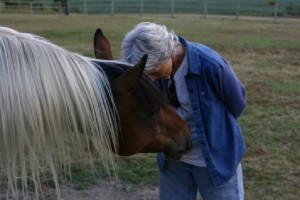
Photo courtesy of Constance Funk
“Let me conclude this introduction with something that causes me great concern – the failure of clinicians and researchers to recognize the uniqueness of the grief experience. Even though mourning tasks apply to all those dealing with losses – how a person approaches and adapts to these tasks can be quite varied. A one size fits all approach to grief counseling or grief therapy is very limiting”.
~ William J. Worden, PhD, ABPP, Harvard University and Author of Grief Counseling and Grief Therapy
Equine Assisted Psychotherapy (EAP) for Childhood Bereavement and Grief Counseling
- Every 27 minutes a parent of a young child dies (US Census Bureau states that approx. 1.5 million children are bereaved of one or both parents)
- 23% of children between the ages of 5-16 have experienced the death of a parent, close relative or grandparent – according to Harvard Study, research shows that 20% of these children will require more intensive intervention…
- Couples who miscarried have a 22% chance of separating over those carrying to term. Couples who experience a stillbirth are 40% more likely to separate
- 32% of women over 55 are widows and 9% of men are widowers
So, how is it that horses can help us to grieve, mourn and bereave our loss?
Horses can provide a safe and neutral environment to process grief. In their “herd” we are heard and allowed to just “BE” present with the emotions we are experiencing without any judgment. Interacting with the horses naturally elicits an opportunity to bond. It, therefore, provides opportunities to reconnect the parts of ourselves that shut down after a loss. Interacting with horses can naturally bring about feelings of wellness, empowerment, peace, and confidence. They remind us that we have resources – walking through the stages of grief alongside a horse does not always require talking. For many, this is just the space needed that will allow the healing and adjusting to life without your loved one to take place. By finding a presence of peace and acceptance from the horses provides an outlet to seek out realistic solutions to problems posed by life without your loved one, and finally to deal with and accept the reality of your situation.
“Bereavement and mourning are tasks of those who have lost a loved one in their lives. Although it can progress to a point where one would exhibit clinical manifestations of diagnosable psycho-pathologies, in most cases it is a sad, difficult but normal time for those who are left behind after a death. It is a time of sadness, anxiety, anger, fear and the desperate feeling of being alone. Not lonely, there are often scores of people offering support to the bereaved…but alone. One is trapped with the real sense that no one else can possibly know how they feel or what they are going through. And of course they would be correct…grief is unique to every person…but to all a dark and difficult journey…”
~ MaryEllen Salamone, 9/11 Widow and Single Mother to 3 Children (read full statement)
Equine Assisted Therapy is now practiced in most countries in the world and has seen a 233% growth rate since 2006. Research shows that people experience many physiological benefits while interacting with horses, including lowered blood pressure and heart rate, increased beta-endorphin levels, decreased stress levels, reduced feelings of anger, hostility, tension and anxiety, improved social functioning and increased feelings of empowerment, trust, patience and self-efficacy. Equine Assisted Psychotherapy (EAP) incorporates horses experientially for emotional growth and healing. It is a collaborative effort between a licensed Mental Health Professional (MHP), an Equine Specialist (ES), and the Horses working with the family to address desired outcome and treatment goals. Because of its intensity and effectiveness, EAP is considered a short-term or a “brief” approach. Equine Assisted Psychotherapy is experiential in nature. This means that participants learn about themselves and others by engaging in activities with the horses, and then processing (or discussing) metaphors, feelings, behaviors and patterns within their own context.
Introduction to Bereavement Process with Horses
You may experience grief as a mental, physical, social or emotional reaction. Mental reactions can include anger, guilt, anxiety, sadness and despair. Physical reactions can include sleeping problems, changes in appetite, physical problems or illness. Many therapies follow the stages of grief as defined according to Elizabeth Kubler-Ross (Denial, Anger, Bargaining, Depression, and Acceptance). Oftentimes, clients report that the therapies are scripted and often follow a template that does not necessary consider their own individual grief process. Negotiating the grieving process alongside a horse allows for a more individualized and client centered approach that begins right where YOU are. Horses meet us right where we need them most thereby making this approach unique to each individual and at the pace most comfortable for them to heal. Whether a young child, teenager or adult – we all grieve as individuals and every situation is different, therefore how this part of life is processed is just as unique and individual. The horses don’t know the “cookie cutter” all they know is what is true, so for each human being that is suffering a loss – the horses will take a fresh approach to what is needed most or least by that person and their situation. The horses also help to keep us focused on the individuality of this process as well as the unique and creative solutions that are available to us all.
Complicated Grief and Acceptance with Horses
In complicated grief, painful emotions are so long lasting and severe that you have trouble accepting the death and resuming your own life. Oftentimes, this may include a sudden death incident, suicide, and trauma or crime victims. Complicated grief is an intensified form of grief that has its own therapeutic considerations. Incorporating the horse as a key element of the treatment team allows for processing at the non-verbal level. Individuals may oftentimes, given the violent nature of the event, left un-rendered to speak or communicate about the events. In fact, there is research to suggest that “talking” can exacerbate the grieving process. Horses provide a gentle, non-verbal opportunity for self-reflecting and introspection. Exercises are centered on instilling resilience, overcoming fears and negotiating bonding. We also encourage “just being” with the horses in a space that feels safe, sometimes having a moment of peace at this sensitive time can greatly reduce mind chatter of the “shoulda, woulda, couldas”. Horses provide numerous opportunities to feel a sense of peace just by simply being in their presence.
Long Term Bereavement Release with Horses
Individuals may find themselves suffering months or years after a loss. The effects of long-term grief are oftentimes overlooked by those around the person. Long after the memorials, and commemorations the individual may wonder when they will ever recover. Does this grief ever really go away? Horses teach us about change, relationships, and adjusting. It is because of their “prey” animal status that their very survival depends on how quickly, truthfully and resiliently they adjust.
Spring Reins of Life has created specific activities with the horses to help children and teens as either individuals or groups cope with grief and bereavement:
- Expressing your feelings to a horse can be a way to vocalize without compromise
- Using art and creative expression as an outlet – “Horseshoe Memorial” and “Body painting on Horses”
- Activities with the horses are focused primarily on intention and body language, this can be very revealing if you are struggling with emotional release
- Interacting with the horses will take you into the present moment and provide a respite of peace and focus
- Activities with the horses can provide a truthful resiliency and renewed self-confidence which can be lacking in a time of mourning
Children’s Bereavement Workshops:
With loss and children, horses are a powerful metaphor. Interacting with horses enables a child to be in control of themselves as well as “something so much bigger than they are.” They enjoy the warmth and special bond that exist between horses and humans, while at the same time find themselves empowered and resilient to be safe and strong in an environment that may seem foreign and unnatural to them. Simply put, therapy with horses works.
Spring Reins of Life will offer a program of therapeutic intervention designed specifically to assist bereaved children cope with the loss of a loved one and find hope and resilience. Groups of up to ten children related in age or family groups will work with a clinical psychologist, and equine specialist and horses selected specifically for their capacity to work with individuals who are troubled or suffering in spirit.
Younger children will be guided through animal therapy type activities with horses or ponies. Our teen program will include activities where the horses will be intermingled in free-will (loose) with the participants in a safe enclosed space where we set about specific activities and exercises designed to open doors for thoughts and emotions. The consulting team comprised of our clinical psychologist and equine specialist (as well as specialists/experts within children’s bereavement, art and music therapy) will work with the participants in the both the younger and older group to help them understand their emotions, their body language and the horses reactions to them. The horses will offer chances for the children to find renewed self-confidence, ways to conquer fears, and to learn more about and accept the mixed emotions that accompany grief and bereavement in real time (in-vivo). And, of course, the consulting team will guide the processing of issues that arise from interactions with the horses and help each child incorporate a set of coping and resilience skills that they can then take with them into their real lives.
The workshop will also include components of traditional grief therapy such as journaling and/or construction of memory projects, but only if a child chooses to participate. And each child will be guided by a peer who has also experienced the loss of a parent in activities to promote quiet interaction with the horses. Some of the activities will include grooming of the horses, interaction with our “mascot” yearling, painting memory murals on the horses, and simply “being” with the horses if a child so chooses. These activities will promote the peace and calming proven effective with all animal assisted therapy.
Children can attend one or several of our workshops as they are designed to meet the unique needs of the participants. We can also work directly with a child’s therapist and also incorporate the family into EAP sessions with the horses. If a client desires, or a client’s therapist feels continued work with the horses would be beneficial and healing, arrangements can be made with our mental health team. EAP treatment can stand alone or as an adjunct to ongoing mental health treatment in collaboration with another primary therapist. Oftentimes, this type of work elicits powerful emotions that may require the continued processing and guidance under a therapist’s care. Participation in this program allows for collaborating with your therapist. In fact, it is highly encouraged. We can coordinate care with your therapist or recommend a therapist that can provide continued support.
“A pet or Animal Assisted Therapy is a medication without side effects that has so many benefits. I can’t always explain it myself, but for years now I’ve seen how instances of having a pet or being in the presence of animals is like an effective drug. It really does help people cope.”
~ Dr. Edward Creagan, Oncologist at Mayo Clinic, Rochester, MN
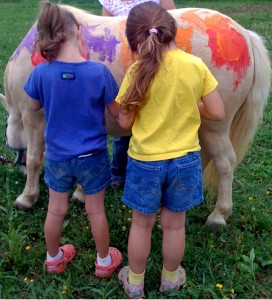
Photo courtesy of Mane Support
